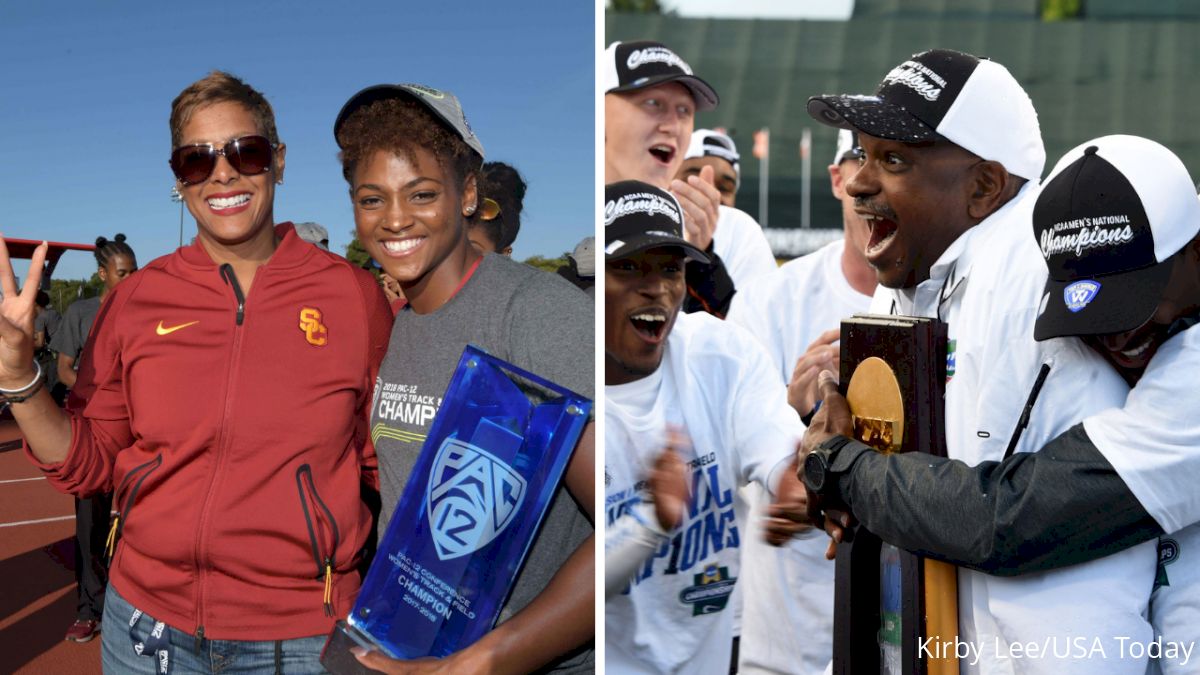How Are NCAA Coaches Dealing With The Late World Championships Schedule?
How Are NCAA Coaches Dealing With The Late World Championships Schedule?
How are collegiate coaches approaching with a season where the World Championships don't end until October? We talked to five to find out.

Unlock this article, live events, and more with a subscription!
Already a subscriber? Log In
The 2019 World Championships offer its fair share of quirks.
There will be a mixed gender 4x400m relay for the first time in meet history. The hot temperatures in Doha, Qatar means there will be a cooling system in the stadium. The marathon will be run at midnight. The track is pink.
But the issue that garnering the most attention (at least for the time being), is when the meet is taking place. Typically, the global championships begin in mid to late August. Doha’s September 27th start date is the latest a World Championships has ever kicked off (the next closest is the 1987 edition of the meet that began on August 28th). You have to go back to the 1968 Olympics to find any global outdoor championship that started after September 27th.
This shift is particularly consequential for collegiate athletes who have NCAA championships in March and June. By late September and early October (when the World Championships conclude), some of them will have been competing for nine months.
In December, five collegiate coaches shared their approach to balancing the long season. Their responses below have been lightly edited.
Mike Holloway, Florida
"At the end of the day, I’m a college coach and I have to prepare my team to be ready for the NCAA Championships. I think the one thing people are failing to realize is it’s a month. It’s not like it’s four months or five months. It’s a month.
So we are just going to give our kids off a little bit after the NCAA Championships and retool things, but I think if you start playing with that dynamic a little bit in terms of the collegiate system you end up screwing yourself up a little bit. I’ve been doing this a long time so I’m fairly certain I can have my kids ready to run at the end of September."
Bob Braman, Florida State
"As a program, you have to let them represent their country if they can and if you have to, adjust the NCAA around it. What it really means more than that is it might mean something different to 2020 indoors because where’s your base period? Where’s your recovery period? You might be going into December and January in the cobwebs just trying to pull things together. I could see a greater impact next year than this year."
Caryl Smith Gilbert, USC
"It’s not just with Worlds being late it’s that for 2020 the Olympics are like 8 months later. That’s really the key to Worlds being late, there’s not much of a window between Doha and Tokyo. And not even really Tokyo, the US championships are the week after NCAA Championships. So the women, they run on Saturday on NCAAs typically. That next Friday the women’s 100m for the (Olympic) Trials begins.
The issue we have at USC is some people are going to have to decide if they want to do Doha because you can’t miss very much school and USC is number 15 academically and some of the professors might not buy that.
You have the World Championships waiver that the NCAA gives you if you want to take a semester off, but how does that affect you in your next semester? Your next year? I don’t know. So there are going to be some decisions that all collegiate athletes are going to have to make depending on their universities expectations of missed classes."
Mick Byrne, Wisconsin
"The fact that the World Championships are late September, early October fits really well in. Just think about it: We are at the NCAAs (the NCAA Outdoor Championships) they compete the seventh, eighth of June, take a week or so off and then get back at it right away. They are gonna go to Europe. It fits in really well with our NCAA season, unlike previous years."
When asked if Morgan McDonald and Oliver Hoare would have to return to Australia to compete in their national championships
"They aren’t going home for that. They are committed to NCAAs, they have to be. This is Morgan’s last year. We’ve talked about it. We are going to gamble if he gets the qualifying time (for the World Championships).
He’s done it before, there’s no reason he can’t do it. Now that the IAAF has changed it from that silly point system that they were using. Now they’re back to qualifying we are hoping he gets one of those top three spots."
Dennis Shaver, LSU
"All of the athletes need to be ready for their national championships or there is no World Championships for them. Mondo (Duplantis) might be the exception representing Sweden.
There’s a lot of consideration going into those athletes that have the possibility to compete at that level. It is a very strange calendar.
The best way I can put it is just manage the athletes. I’ve got a little bit of experience with it. We had Richard Thompson back in 2008 where he won NCAA indoor in the 60 and he won NCAA outdoors in the 100 and then he ran a personal best in late August when we went to Beijing. It’s an ability to manage them more than anything else."